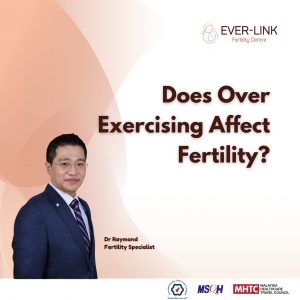
Exercise is good for you, there’s no debate there. It boosts mood, strengthens the body, and improves overall health. But when it comes to fertility, is there such a thing as too much? The answer isn’t black and white. While regular movement supports reproductive health, excessive exercise can sometimes have the opposite effect. Let’s dive into what’s happening inside the body when exercise becomes extreme.
The Impact of Over Exercising on Fertility
For many, exercise is a stress reliever. But when done in excess, it can become a source of stress for the body. Fertility is tightly linked to hormonal balance, and over-exercising can disrupt this delicate system in several ways:
1. Hormonal Imbalances
Intense, frequent workouts can cause stress hormones, like cortisol to spike. When cortisol levels stay high for too long, they can interfere with reproductive hormones such as estrogen and progesterone. These hormones regulate ovulation, menstrual cycles, and overall reproductive health.
2. Irregular or Missed Periods
One of the biggest red flags of excessive exercise is changes in the menstrual cycle. Some women experience lighter periods, irregular cycles, or complete loss of menstruation (a condition known as hypothalamic amenorrhea). Without regular ovulation, conception becomes much harder.
3. Low Body Fat and Fertility
The body needs a certain amount of fat to produce the hormones necessary for reproduction. When body fat drops too low due to excessive exercise, hormone production slows down, affecting ovulation and menstrual health.
4. Effects on Egg Quality
Overexercising can also impact egg quality. Studies suggest that excessive physical stress may lead to oxidative damage in cells, including the eggs. Poor egg quality can make conception more difficult and increase miscarriage risks.
5. Male Fertility Matters Too
It’s not just women who are affected. Overtraining in men, especially endurance sports, has been linked to lower testosterone levels and reduced sperm quality. While exercise supports sperm health, extreme routines can interfere with hormone production and fertility.
Finding the Right Balance
So, should you stop exercising altogether? Absolutely not. Movement is essential for good health, but moderation is key. Here’s how to maintain fertility friendly fitness:
✔ Listen to Your Body – If exercise leaves you feeling exhausted rather than energized, it may be time to dial it back.
✔ Watch Your Cycle – Irregular or missing periods could be a sign that your body needs more rest and nutrition.
✔ Fuel Properly – Eating enough to support your activity level is crucial, especially if you’re trying to conceive.
✔ Opt for Moderate Workouts – Activities like yoga, walking, and strength training provide benefits without overwhelming the body.
Exercise is powerful, but balance is everything. While movement supports fertility, pushing too hard can disrupt hormones and reproductive health. The best approach? Find a fitness routine that strengthens your body without stressing it. Whether you’re trying to conceive or simply maintaining overall wellbeing, remember your body thrives when it’s nourished, rested, and treated with care.

